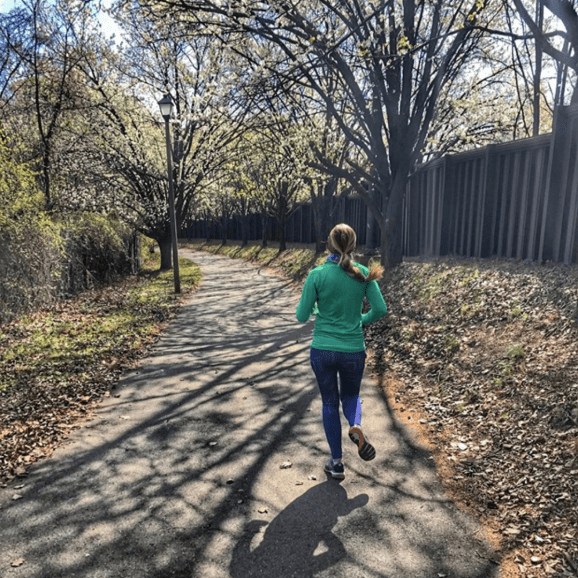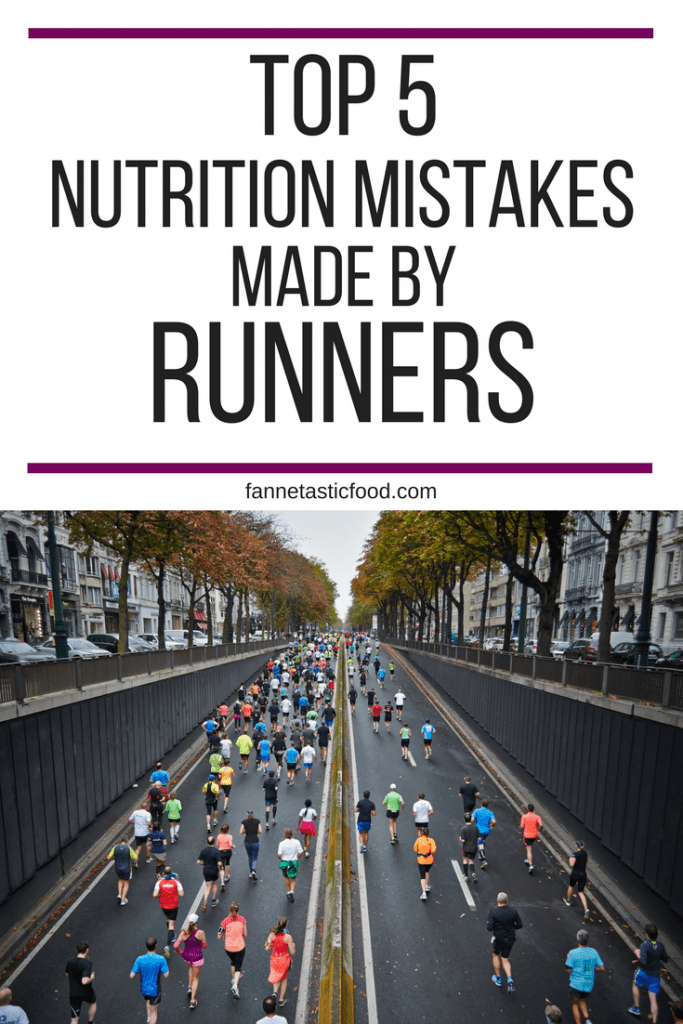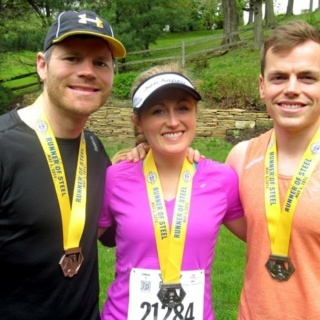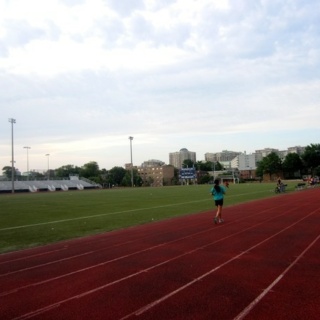I recently polled a bunch of my running buddies, asking them what running nutrition themed posts and tips they’d find helpful. Last year I published posts about How to Fuel a Long Run and What to Eat Before and After a Run, so the consensus this time was to touch on some of the typical mistakes that runners often make in terms of their nutrition. I actually wrote a post on this topic 5 years ago, so I thought it was time to update the post and give it another share! As a runner myself, I know that a great training plan is only part of your success on race day – nutrition is the other key and it matters, big time. Proper nutrition for exercise will increase energy, prevent dehydration and electrolyte imbalances, correct GI distress, and optimize recovery so you’re performing at your best. I hope you find this post helpful!
Here are the top 5 nutrition mistakes I see commonly being made by runners!
#5 Skipping Breakfast
I often hear from clients that do runs or workouts early in the morning without eating anything first, and then wonder why they lack energy towards the end of their sweat session. Without any fuel before a run, you’re likely to bonk. Your body needs energy to power through the workout – don’t deprive it! Aim for fuel that is lower in fat, protein, and fiber (all of which slow digestion), and higher in simple carbs, like toast with a thin layer of nut butter and either sliced banana or some jam. Heading out the door in seconds? Try something smaller, like a few bites of banana, a date, or even a couple handfuls of a lower fiber cereal.
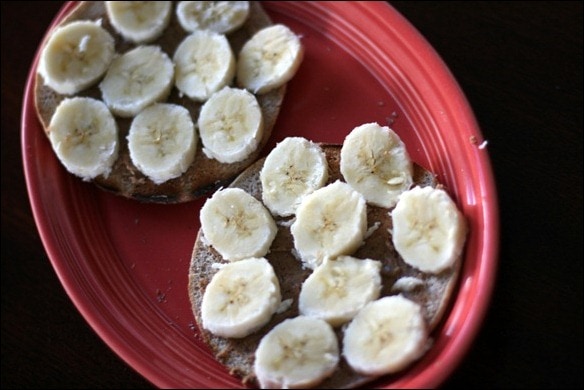
#4 Overdoing it on fuel the night before a race
It’s important to make sure that your glycogen stores (the storage form of carbs in the body) are full and ready to go on race day, but you can easily do this by making sure to include a carb source at each meal the week before the race. Flooding your system with large quantities of carbs or anything too greasy or heavy the night before the race will just leave you running to and from the porta-potties. Aim for something that includes carbs but also has some good protein, and that you eat often/know generally sits well for you. My favorite pre-race dinner is pasta with some grilled chicken, veggies, and a red sauce, or a simple quinoa or rice and seared salmon.
#3 Not adequately re-fueling after a long run.
Restricting calories can cause bones to weaken and may result in stress fractures, and if you’re under-eating, your muscle is not adequately being repaired and built after long runs! Be sure to eat something within 30 to 45 minutes of a run, aiming for something rich in carbs and protein. If you are feeling queasy after a long workout, try liquid nutrition first (like chocolate milk or a smoothie) and then have a real meal later.
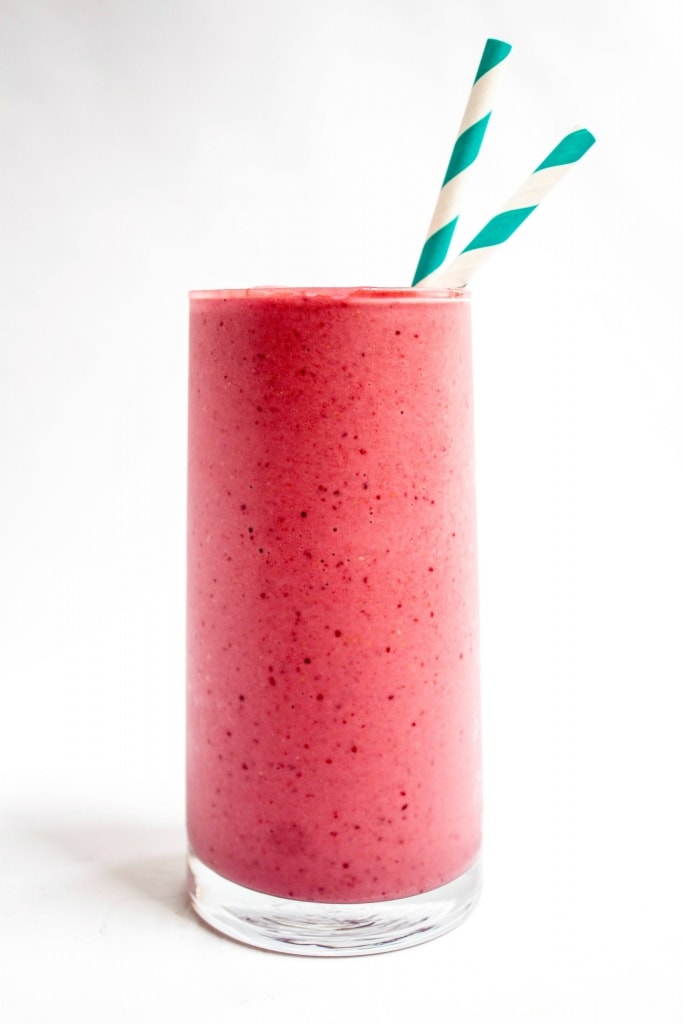
#2 Trying something new on race day.
You never want to try a new fueling strategy on race day because you never know how your body will react to it. Check the race Web site to confirm which drinks and gels (if any) will be offered along the course so you can test them out in advance, or bring something with you that you know your body responds well to.
#1 Not taking in enough calories during the actual run
If you’re running longer than an hour or so, you’ll need to start taking in some carbohydrates while running – generally about 30 to 60 grams of carbs per hour. Probably the biggest mistake I see running nutrition clients make is either not fueling during their long runs, or not taking in enough fuel. If you are finishing runs feeling extremely depleted and/or nauseous, fuel may be to blame. The human body has a limited supply of carbohydrates and once this “fuel tank” starts to run low, your performance will suffer. Exactly how much to take in will be based on your height and weight and will also involve a little trial and error, so practice different types and amounts of fuels during your runs leading up to race day and see what works for you. For example, during a 20 mile run I might take in one gel and some gummies, 2 to 3 nut butter stuffed salty dates, and a small granola bar (aim for lower fiber, fat, and protein bars in this case – opposite advice from normal life)! I find for longer runs over the half marathon distance, I tend to need more “real food” fuel vs. just gels and gummies – but that may be different for you!


